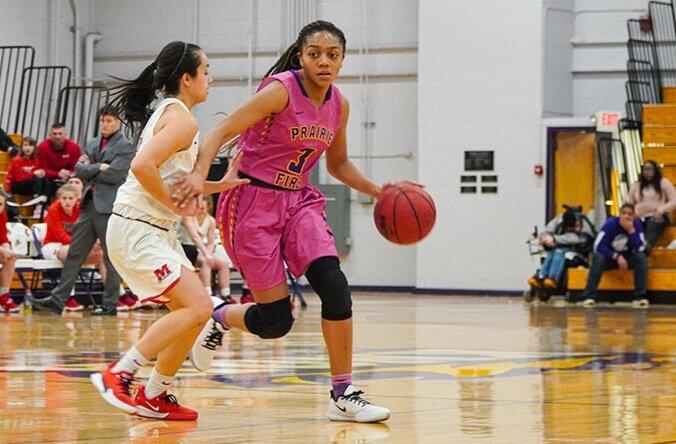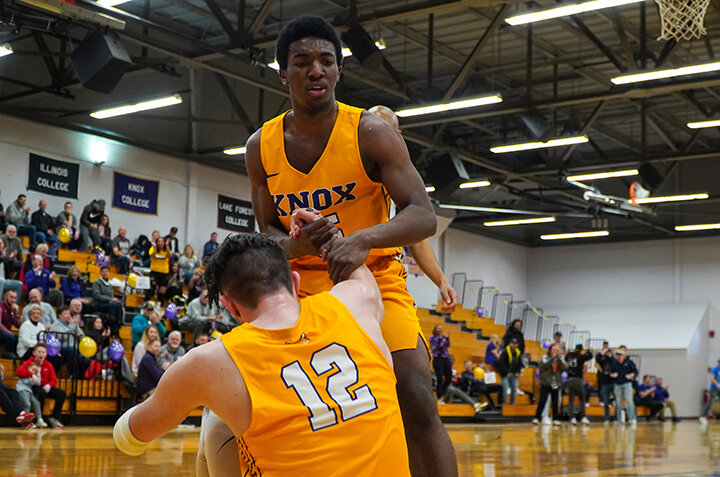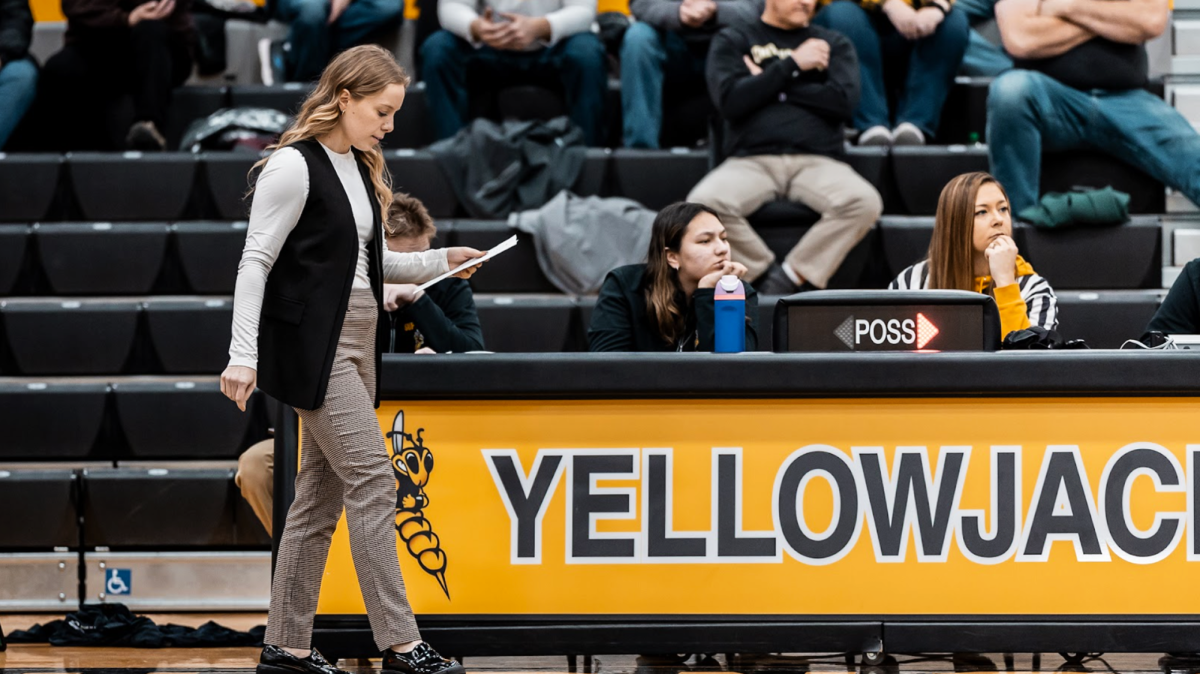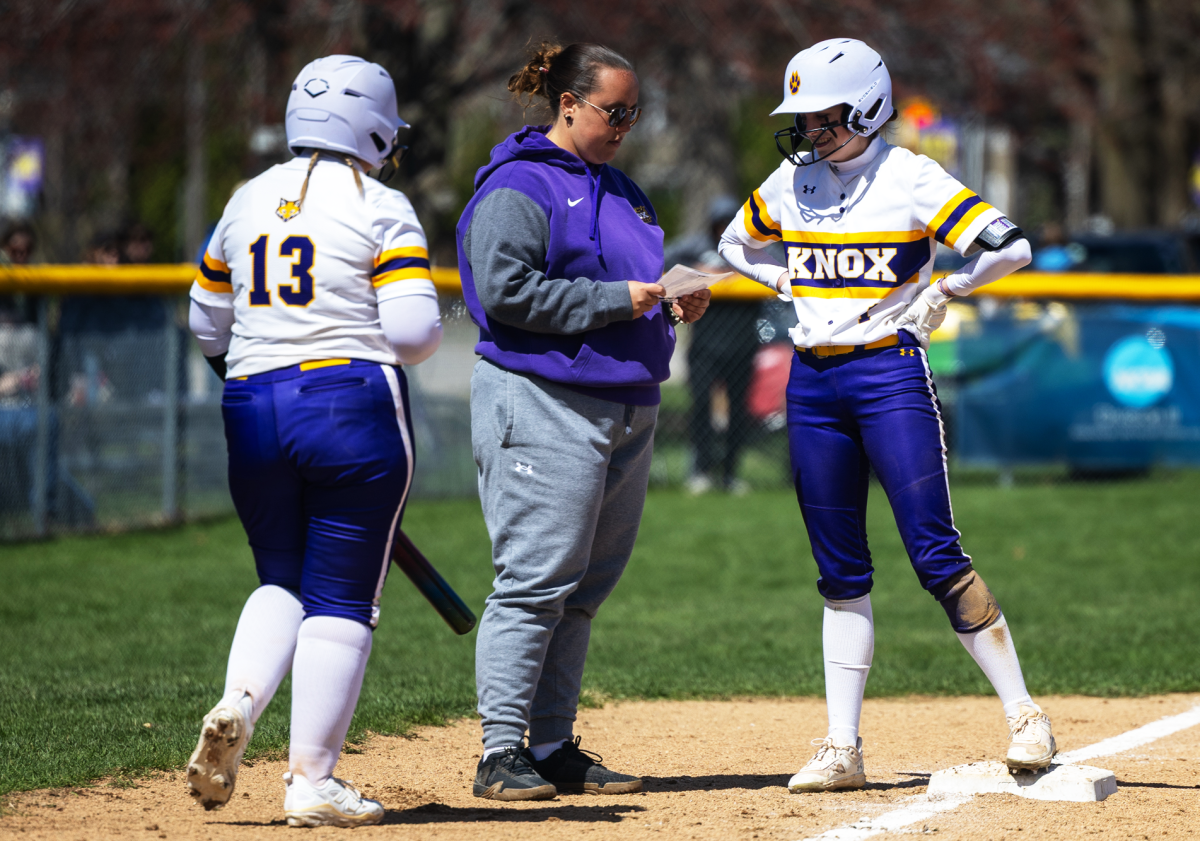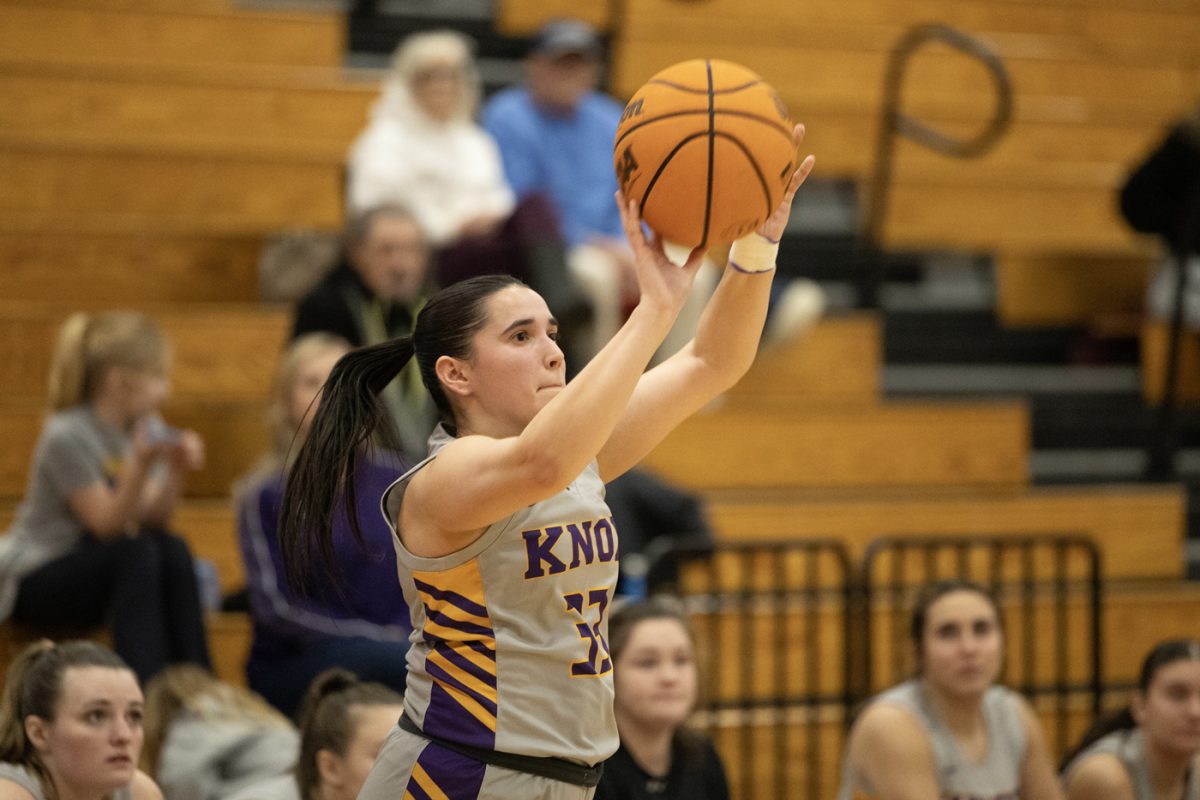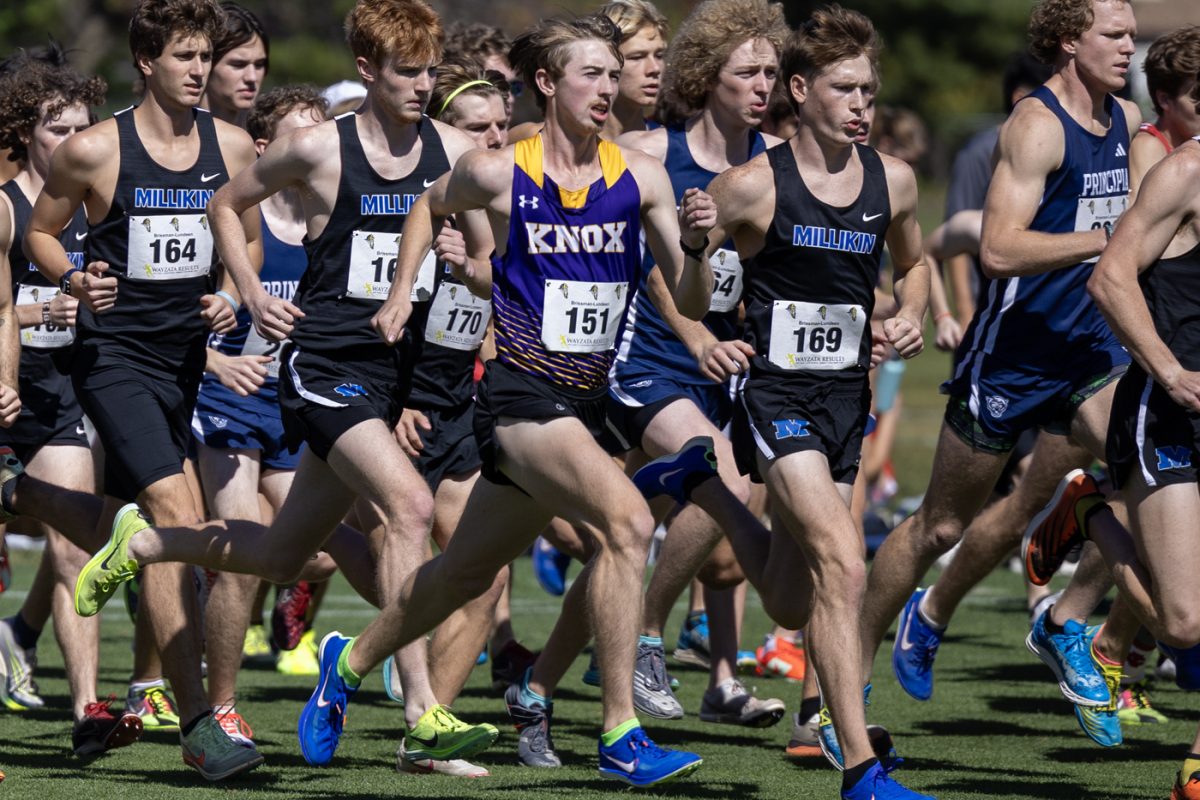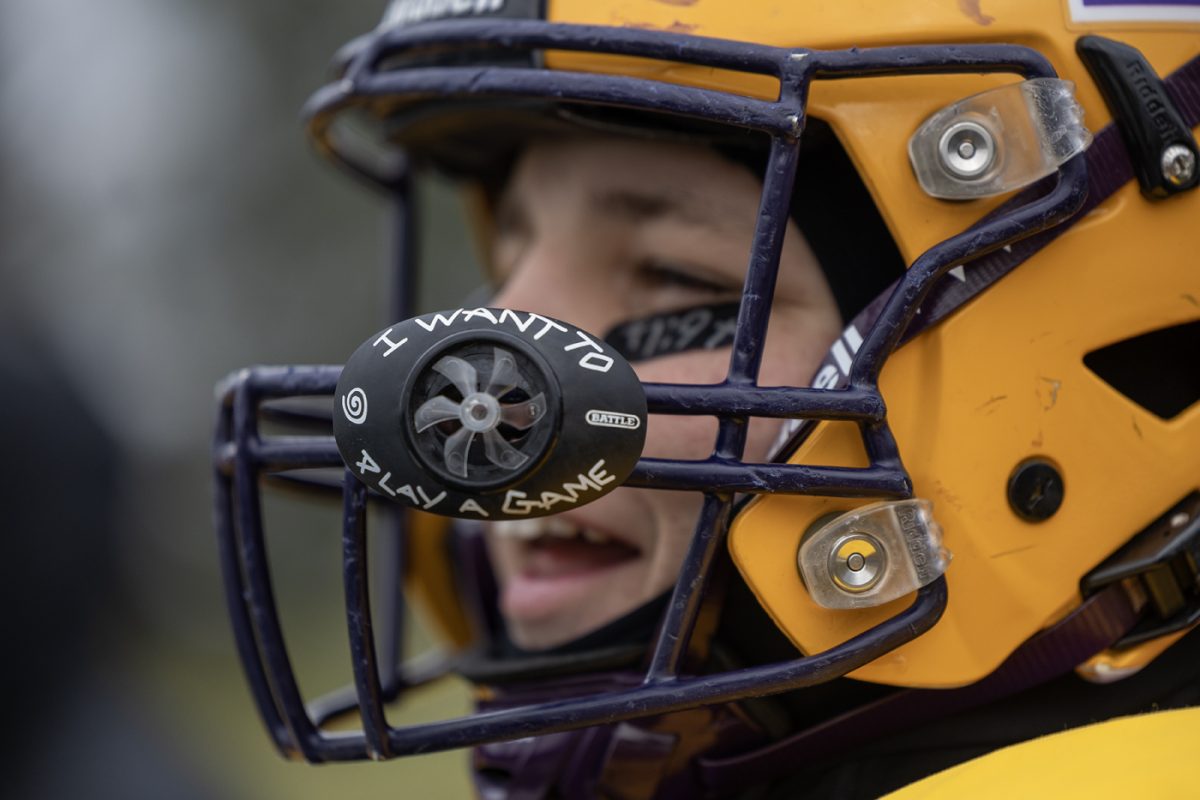What it means to take a stand against systematic violence within sports communities on and off the Knox College campus.
When junior basketball player Jessica Lee attended a Black Lives Matter protest over the summer, she did see some people who were simply trying to disrupt, but more than that she noticed one thing, Hurt. No matter the age, each age demographic was hurting.
“There were people there and you can feel the emotion with just people hurting. Literally. I’m seeing people younger than me, people older than me. And we all have had the same thing in common. We’re hurting. We’re hurt. Our community is hurting and we’re just calling out for help,” Lee said.
For Lee, the protests weren’t about creating chaos and disruption, but rather having the voices and pleas of the community heard.
Sophomore Jordan Rayner was driving on his way to school past the looting and destruction that was happening after the Michael Brown shooting. Rayner attended Chaminade College Preparatory High School in St. Louis, MO. He saw people raiding stores and carnage. He was experiencing what many may consider the start of the Black Lives Matter movement in America.
Rayner was a sophomore in high school at the time. Two years prior, Travon Martin, 17, was killed by George Zimmerman in Florida. Rayner is a part of a generation that grew up in the social media era. These incidents were not new, they were just more accessible to people.
“Your parents talk about Rodney King, but to actually see an act of violence is a different experience,” Rayner said.
Now, as a sophomore in college, the experience of seeing the pain and frustration on the faces of those protesters stuck with him throughout the years. That feeling coupled with the influence of his parents, and seeing people who attended his high school, such as NBA stars Bradley Beal and Jayson Tatum – who both recently donated meals back in St. Louis during the pandemic – come back and give to the community, helped inspire Rayner to vote and do his part in making change.
Generation Z, which is composed of people in the age 18-23 range will make up 37% of the 2020 electorate this year according to axios.com. This is the generation that grew up witnessing or hearing about Oscar Grant, Tamir Rice and Michael Brown. Recently, they’ve also heard and seen George Floyd. They’ve also witnessed a generation of athletes, spearheaded by LeBron James, use their voice to speak up on behalf of their communities.
According to pewresearch.org, the Black vote fell for the first time in 20 years during 2016. The percentage of Black voters declined from 66.6% to 59.6%. One of the factors responsible for this was counties across the country that reduced early voting and the amount of voting locations. This, along with Donald Trump’s presidential campaign that used a specific algorithm to urge black voters not to vote by filling their feed with negative ads about Hillary Clinton.
Felons in this country also have their voting rights revoked, but they are still paying taxes. In Florida, a legislature required that felons pay a fine before their right to vote is restored. As a result, Lebron James’ nonprofit More Than a Vote has partnered with the Florida Rights Restoration and donated $100,000 to their organization to help ensure that past felons can still have their right to vote.
Voting, however, isn’t the only way athletes are using their voice to promote change. Brooklyn Nets guard, Kyrie Irving, paid the salaries of WNBA players who did not go to the bubble. Irving is anonymous in a way. You don’t see or hear from the Jersey-born guard often. However, it is the power and conviction in his words that stick.
It was reported that Irving said, “I’m willing to give up everything I have for social reform.”
The star guard was vocal in his stance about not going to the bubble. Irving is one of the people that Lee has admired.
“I respect them for going or whatever, but it’s like, we need voices that are gonna, like, you have to act more than you talk. So I admired Kyrie Irving for his courage for doing that and for stepping up for the Black community,” Lee said.
Irving was recently on The ETC, a podcast hosted by his teammate Kevin Durant and Eddie Gonzales, where he discussed what he believed was his purpose on Earth.
“Honestly, it’s so hard to do it without a destination. My destination at this point Isn’t to be the greatest basketball player to ever live. What the f*ck does that title mean? It’s such a small atmosphere of who I am,” Irving said. “I stand for my native, indigenous, Black men and women, kings and queens, Hispanic and Latin, all of the seeds of the earth that have been here before White America or this White ideology of who we’re trying to be and what we should do. Sometimes I feel like I have to hide my gifts to dumb it down to be a basketball player.”
It is this generation of players that are putting the money where their mouth is. When the NBA players went on strike and were debating whether or not to continue the season, Boston Celtics guard Jaylen Brown spoke up on Twitter to ask his peers, ”Are you going home to work? Or are you going home to be on the front lines?”
Not all people are motivated to help out other people and their communities by athletes, sometimes it starts with a strong nurturing family. For senior Ikenna Ozor, former basketball player and member of the Student Athlete Advisory Committee at Knox, his commitment to helping others started with his father.
Ozor’s parents are originally from Nigeria. They’re part of a group that helps deal with issues back in the village where many of his people are from. He watched his father go to these meetings and observed what he was talking about in them. As a young and impressionable child, he wanted to emulate his father.
For Ozor, the light bulb clicked in high school that he could make a difference. He was not famous, an athlete or an entertainer, but he felt that he could help promote change in his own way.
“I think in high school was when I really realized I’m a pretty good speaker and people seem to kind of follow me, I feel like I can make an impact. So then really it’s just the idea of helping other people.That’s really all it comes down to,” he said.
Ozor joined the Student Athlete Advisory Committee as a first-year to better connect with the rest of the campus. It happened by chance.
“I joined my freshman year and the only reason I joined, I did not hear about it before I joined, was because one of the players was quitting and he was one of the reps. And so he thought I’d be a good fit for this,” he said.
When athletes donate to charity or visit ill patients in the hospital, there is no talk about sticking to sports. However, once Black athletes use their voice to say “Black Lives Matter,” there is typically a rebuttal. Critics often claim they want to keep politics out of sports, but the majority want to keep politics that they don’t agree with out of sports.
It’s nearly impossible for many viewers to separate the athlete from the person. When athletes take off the jersey, they are often seen only as Black citizens, not popular athletes.
ESPN’s Malika Andrews gave a very poignant interview after the ruling of Breonna Taylor where she said, “That could’ve been me.”
“You can’t just see sports and just be like, ‘Okay, this person’s just dribbling a basketball,’ you know? Like that’s not all of him. In order for him to get there, he had to, or the person athlete, likely had to undergo things that the audience doesn’t normally have to go through,” Ozor said.
Senior Alyx Farris plays for the Women’s soccer team and offered similar sentiments about the way people view athletes.
“I have mixed feelings because I just think that a lot of people don’t actually care about athletes. They just care about what they do. They just care about entertainment. They just care about their athleticism, and they don’t care about their livelihood or whether or not they care about Black Lives Matter,” Farris said.
Though she attended a protest, she feels that her best way to help is by listening to people of color and sending money to the people who were on the front lines. Farris admires the WNBA and Sarah Gorden and Casey Short of the Chicago Red Star for their role in making change.
“[Gorden and Casey] barely make enough as professional athletes. And then they still extend their time and money to neighborhood pauses, to supporting young Black athletes,” Farris said.
The WNBA players showed up to a game with seven holes in their shirts because of the Jacob Blake shooting. Maya Moore stopped her career at its height in order to focus on reforming the justice system.
For Farris, change means taking action.
“I think voting is like some marketing ploy. I think you literally can’t vote within a system that’s killing you. Like you can’t vote out your oppressor. I think I’ll vote because it’s something that I can do, but I think change is going to happen with violence and physically challenging the system and pain reparations,” Farris said.
Now, many people admire when athletes use their stardom to help their communities. It is not their job though. This year, people arguably see the humane side of Black athletes more than ever before. You see the frustration on their face when they have to speak out on issues that pertain to people who look like them. Being an NBA player doesn’t make them immune to mistreatment. Thabo Sefolasha had his leg broken after an encounter with a police officer back in 2015. Sterling Brown was tased by an officer, had a gun pulled on him, and was pushed to the ground. Brown later filed a civil rights lawsuit after the excessive force.With the hiatus of live games and the protest covered 24/7, it forced many to stop and acknowledge what was going on.
The pandemic, in many ways, served as a powerhouse for the movement by allowing the time and space for many to listen and pay attention. There was no game on Sunday to distract from the protest like the years after Kaepernick was blackballed from the NFL. There were no exuberant touchdown celebrations or emphatic slam dunks to cover up the feelings. The pain heard in ex-Los Angeles Clippers’ coach Doc Rivers was a buildup of a lifetime. The voice cracking was Rivers’ letting down the walls that he had built up behind the fiery yells as he patrolled the sidelines. He, like many African-Americans, was tired.
“It was a lot to take in because it was a lot going on at once. It was like open season for Black people. It was like every day [there was] something, a new story about a Black person being mistreated or dying, you know, police violence, things like that,” Lee said. “I’m happy that we’re finally trying to stand up for ourselves. A revolution is necessary at this point because you have to, we have to, change for ourselves because nobody’s going to do it for us.”

